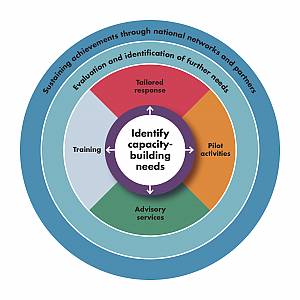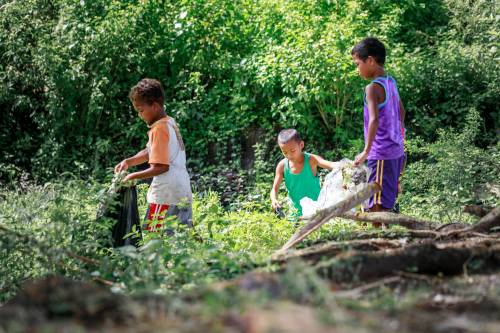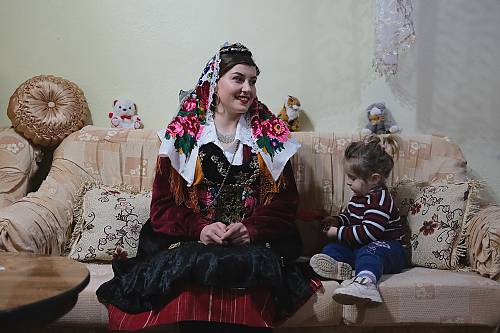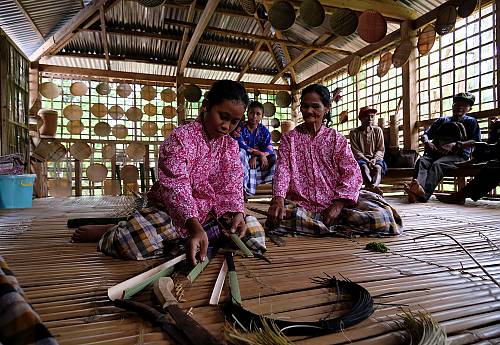Capacity building is one of the five functions that UNESCO performs to fulfil its mandate. As such, one of the top priorities for implementing the 2003 Convention for the Safeguarding of the Intangible Cultural Heritage is its global capacity-building programme. The Programme was put in place in 2009 to support countries in safeguarding their intangible cultural heritage and harness its potential for sustainable development, while promoting broad public knowledge and support for the Convention.
Communities are at the heart of safeguarding intangible cultural heritage
The 2003 Convention places communities at the center of all its safeguarding activities. The capacity-building programme takes an inclusive approach to ensure the widest possible participation of all relevant stakeholders, especially relevant community groups, in the design and implementation of safeguarding activities.
What we do
- Develop community-based inventorying and safeguarding methods
- Support the ability of States to effectively implement the Convention
- Integrate the safeguarding of intangible cultural heritage into sustainable development plans, policies and programmes at all levels
- Strengthen institutional frameworks to help safeguard intangible cultural heritage
- Enhance monitoring for the implementation of the Convention

How we do it
The Programme offers capacity-building services at country level, combining training, advisory services, stakeholder consultation and pilot activities. These can be adapted to specific country needs and thematic topics, always with the view to ensuring the continued impact and sustainability of safeguarding measures at national level.
UNESCO develops content and training materials and draws upon its dynamic network of trained facilitators to deliver capacity-building services in countries around the world.
For more details on the global capacity-building programme, download our informative leaflet: English|French|Spanish|Russian|Arabic|Chinese






